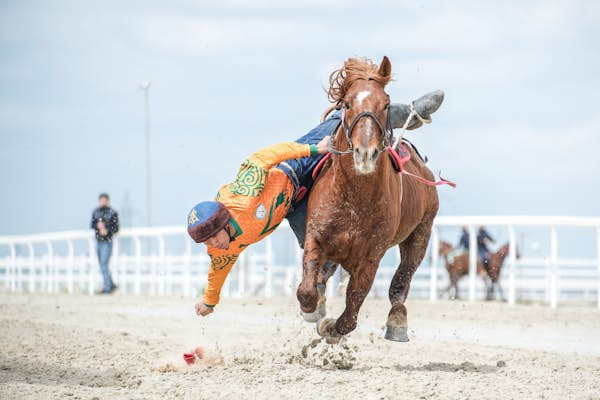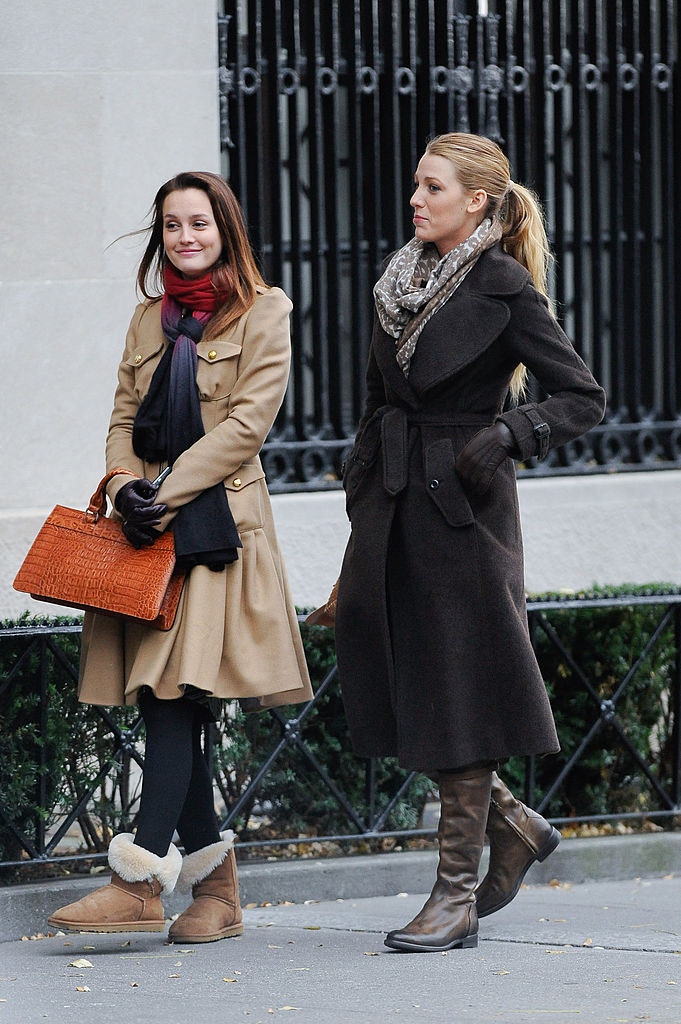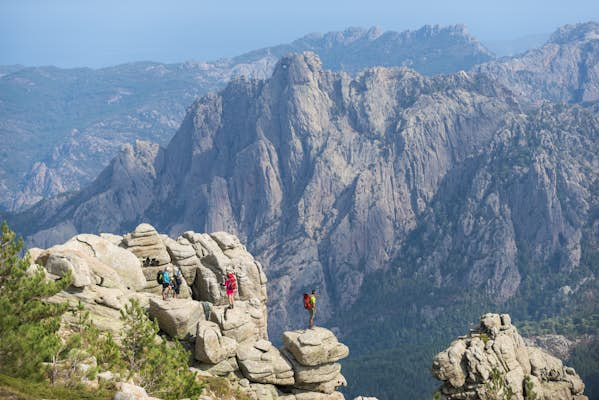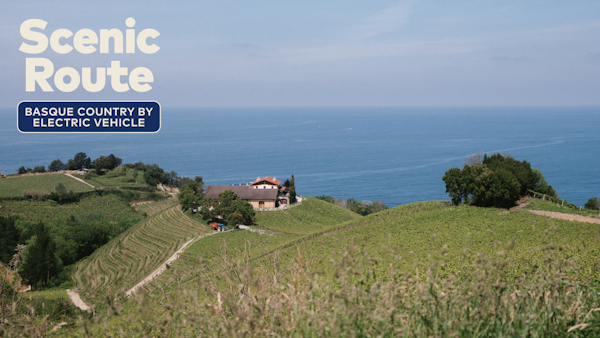
Archery, eagles and wrestling: How to see the World Nomad Games in Kazakhstan
The World Nomad Games is happening in Astana, Kazakhstan in September. Here’s everything you need to know.
Central Asia’s biggest sporting event is back in its fifth iteration for 2024 – the World Nomad Games continuing its migratory trend (thematically appropriate, one thinks) with a move to Astana, Kazakhstan from September 8 to 13.
Themed as “The Gathering of the Great Steppe,” the Astana World Nomad Games (WNG) brings back event highlights, like sporting competitions and an ethno-village showcasing regional cultures, while adding a unique scientific conference and an unusual big-city vibe to a competition that has previously primarily been held in rural locales.
Unfortunately, official information about the World Nomad Games is hard to come by, and first-time visitors often have the same basic questions as they begin planning their trips so we’ve pulled together this guide on how to make the most out of a trip to Central Asia’s “Nomad Olympics.” Note that, according to the organizers themselves, much information will only be available starting sometime in August – including items like when most events tickets will go on sale, how much they’ll cost, or indeed even how many tickets will be available at several key event venues. All information here is accurate at the time of publication, but anticipate some changes before the event begins in September.

Buying tickets to the World Nomad Games
In a departure from previous iterations of the World Nomad Games all events will be ticketed, with tickets made available for purchase on the World Nomad Games webpage. Payment can be made with international Visa and Mastercard accounts, and can be refunded after a 14-day wait. However, note that currently the website will at times accept payment but not send tickets; the WNG are unable to comment on when this technical issue might be resolved, and refer visitors to the ticketing agent support directly.
Tickets for all wrestling events are currently on sale starting from 600–5000T (US$1.25–11.46) depending on event and start times. Tickets to the opening ceremony at Astana Arena and equestrian events at the Hippodrome complex are not yet available to purchase – event venues are still under construction, and tickets are expected to be released in August once final seating configurations for the venues are established. WNG authorities indicate that tickets will also be available to purchase on-site from sales points at the Hippodrome, Ethnoaul, and Astana Arena; but no information regarding the prices of opening ceremony or equestrian event tickets is currently available.
Competitions at Duman Hotel for togyz kumalak, mangala, and owari (all intellectual/board games) are closed to the public, and thus no tickets will be issued for these events.

World Nomad Games sports competition schedule and venues
The vast majority of the public-facing Astana program will be centered on two areas: the Wrestling Palace (43 Kabanbay Batyr Ave) and adjacent Alau Ice Palace (47 Kabanbay Batyr Ave) in the center of Astana’s modern skyscraper district at the heart of the city, and an area to the southwest of the center where the Kazanat Hippodrome, Argymak Equestrian Complex, and Ethnoaul are all clustered together.
For international visitors, the most exciting new-to-you sports will typically be those played on horseback at the venues in the southwest. At Ethnoaul, horseback archery and horseback wrestling offer a mounted twist to familiar concepts, while kokpar and kok boru at the Kazanat Hippodrome showcase two teams fighting to yank a stuffed headless goat carcass from the midfield line to toss it into a large goal at the far end of the pitch. On September 12 and 13, look for Tenge Ilu events in which riders collect coins or other small objects from the ground at a gallop as well as Kusbegilik events, as bird trainers and their hawks, falcons, and golden eagles compete in simulated hunting exercises.

In the Wrestling Palace area, competitions of at least nine different forms of wrestling will be held across various venues. While casual spectators may struggle to spot the differences between koresh, kurash, kuresi and gureshi the local crowds from across Central Asia take their national athletes very seriously and it’s worth spending at least a few hours here if only for the atmosphere of the venue.
Intellectual games mangala, toguz kumalak, and oware will be held at the Duman Hotel in Astana, but competitions are not open to the public.
A detailed program of sporting events is available directly on the World Nomad Games website, but if previous years are any indication, don’t be surprised if timing changes on the spot with little communication, so try to retain a flexible outlook.

Cultural events at Ethnoaul
The base for cultural events at the World Nomad Games is the 10-hectare Ethnoaul (literally, Ethno-village) beside the Kazanat Hippodrome complex. Cultural events will be focused around three major themes: Ethnohit (folklore and pop music), Ethnodance, and Ethnofashion.
While the cultural program is not yet finalized (check the official website) the current draft version includes theatrical performances, fashion shows, concerts by domestic and foreign artists, and what the organizers are calling an “oriental bazaar” featuring handicrafts products of local artisans, and vendors selling national cuisine on-site.
The 2024 WNG will also incorporate a “Nomad Universe Festival” highlighting the connection of the region’s nomadic past to modern lifestyles in displays on urban and landscape design, modern architectural forms inspired by the classic yurt, and daily artwork exhibitions by local sculptors.

Scientific Program at the World Nomad Games 2024
Alongside sporting and cultural events, a scientific conference will be held at Kazakhstan’s National Museum from September 9 to 11 on the themes of “History and Culture”, “Sport Science”, and “Nutrition of Central Asian Nomads”. Presentations will be free and open to the public (though advance registration, which will not be possible until sometime in August, is required) and presented with simultaneous translation in Kazakh, English and Russian. A detailed program of presentations should be available in August as well.

Getting to and around the World Nomad Games
The city of Astana is well-connected by Nursultan Nazarbayev International Airport (NQZ) to Central Asia, East Asia, and Europe. Kazakh flag carrier Air Astana connects the city directly to Antalya, Beijing, Dubai, Frankfurt, Istanbul, and Seoul or with connections in Almaty (ALA) to Bangkok and London. Further international carriers include flydubai, LOT, Lufthansa, Turkish, and WizzAir among others.
Within the city and between venues, public buses and private taxis are available. Taxis between the Wrestling Palace and Hippodrome areas typically cost from 1400–2400T (US$3–5) through the popular YandexGo mobile application. Bus tickets can be purchased from drivers for 180T (US$0.38) in cash or half that through the CTS mobile application (which requires a Kazakh SIM card), with the following routes connecting the Astana Arena bus stop (in between the Alau Ice Palace and Wrestling Palace) to Astana Jūldyzy stellasy, which is a short walk from the Hippodrome area: 10, 37, 301, 302, 303, 308, 309. Full route information is available on the CTS site, as are links to download the mobile app on Apple and Android.
Where to stay at the World Nomad Games
Astana has no shortage of accommodation to choose from, from $7 budget backpacker hangouts to $400 high-end luxury hotels. Very generally the area immediately surrounding the Wrestling Palace area is dominated by mid-range and high-end options, including most of the international hotel chains with representation in Astana, while more of the lower-budget accommodation options can be found north of the river in the older section of the city. Options in the southwest of the city near the Hippdrome area are quite limited, but it can be worth checking homeshare platforms like Airbnb to see what is available.
You May Also Like

All The Most Infamous Co-Star Feuds Through Film And TV History
May 15, 2024
10 of the best trekking routes in the world
June 16, 2023

